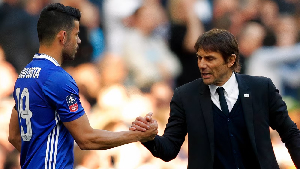May I be granted space to respond to the above-captioned article which appeared on your website on Monday, September 12, 2011.
To begin with, I think what Professor Ernest Aryeetey has done in his speech on the state of the Ghanaian economy is to lay the facts bare and it is up to us, Ghanaians, to do a somber and dispassionate reflection on the state of education and its relation to industry in our country or continue in our delusions that these problems will go away by themselves.
There is no doubt that if even we embarked on radical and rigorous educational reforms today, the fruits of that will not take less than 5 years to begin to show. The implication is that those in the educational system today and those who would follow in the next few years are already in the situation Professor Aryeetey referred to in his speech.
To the extent that 50% of graduates leaving Ghanaian universities will be unemployed, what difference does it make if these students spend three or four years at the high school and proceed to the university? This was a contentious issue between yours sincerely and a friend who thought the John Evans Atta-Mills-led government is doing a marvelous job by constructing classroom blocks all across the country and has reversed the 4-year Senior High School (SHS) program of the John Agyekum Kufuor-led administration to a 3-year program.
Then came, on the heels of this contention, another hollow educational policy statement from the standard-bearer of the opposition National Patriotic Party (NPP), to the effect that he will make education free at the SHS level when elected into office.
These statements and actions of our leaders make me very uncharitable to the leadership of my country. We are all aware that funding of tertiary education in Ghana has been a contentious issue through the decades till today. The problem has not gone away as we all went to sleep after initiating a cost-sharing component into the funding of tertiary education. Today, obviously, the shortfalls in training a graduate are so huge that the quality of education in our country is nothing to write home about.
Instead of political leadership taking the bull by the horn and providing intellectual leadership in reforming education to make educational targeted, purposeful, and relevant to the developmental needs of our country, all we hear is this government is building classroom blocks across the country and the opposition will make education free at the SHS level.
If acquiring university education is just a ritual that confers prestige and not relevant skills that are required in nation building and self development, then we can continue on this orbit, building classroom blocks and making education free at all levels and continue to delude ourselves that the problems that confront our nation with regard to unemployment will simply vanish. Is it not logical that making education free at the SHS will increase the number of individuals seeking admissions to the universities which are already hugely under resourced and would only compound the problem without concomitant increases in funding and facilities? Is it also not the case that though classroom blocks are important, they cannot substitute for quality education which can only come through educational policy reforms?
On my recent visit to Keta, I had the opportunity to listen to one of the sitting MPs of the Anlo Traditional Area talking about his achievements for his constituency on a local radio station – Jubilee FM. I have also been following discussions on Radio Gold’s Executive Platform, a morning show designated for District Chief Executives and Municipal Executives to showcase their achievements for their areas, and all I hear is “I built this and I constructed that; I constructed that and I built this.”
Indeed, in the case of Keta, not a single policy to arrest the falling standards of education in the Anlo Traditional Area, let alone highlighting efforts towards national educational policy which will make education relevant to industry and so on, was mentioned. I am damn certain that given the architectural designs of those buildings, any Ghanaian adult can execute those projects, especially when some of those projects are washed away after heavy downpours in areas where thatch buildings continue to stand or endure.
We need a national debate on education now. This should go hand in hand with the “building of classroom blocks” and lead to immediate reforms in education before unemployment rob our country of the stability it is enjoying in the region.
Prosper Yao Tsikata 1826 Metzerrot Road Hyastville, MD 20783 Email: pytsikata@yahoo.com
General News of Wednesday, 14 September 2011
Source: Prosper Yao Tsikata/1826 Metzerrot Road
Rejoinder: 50% of graduates not likely to get jobs - VC
Opinions











